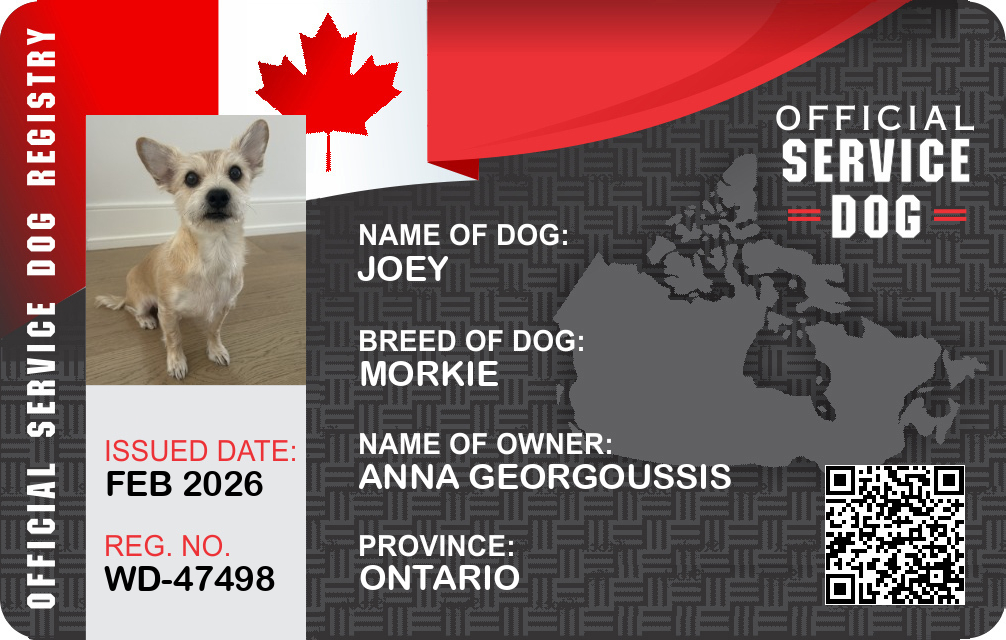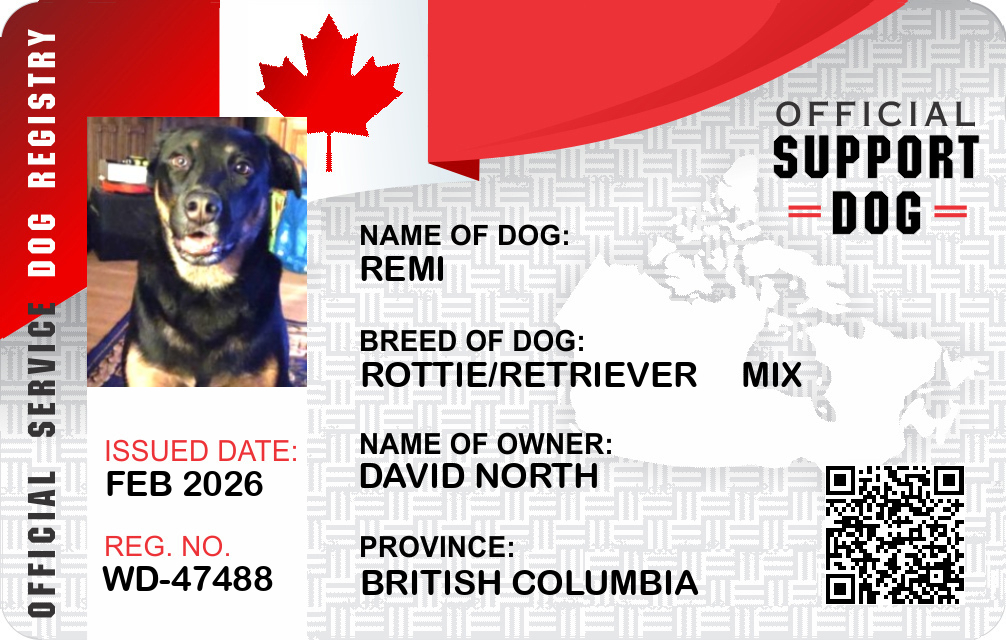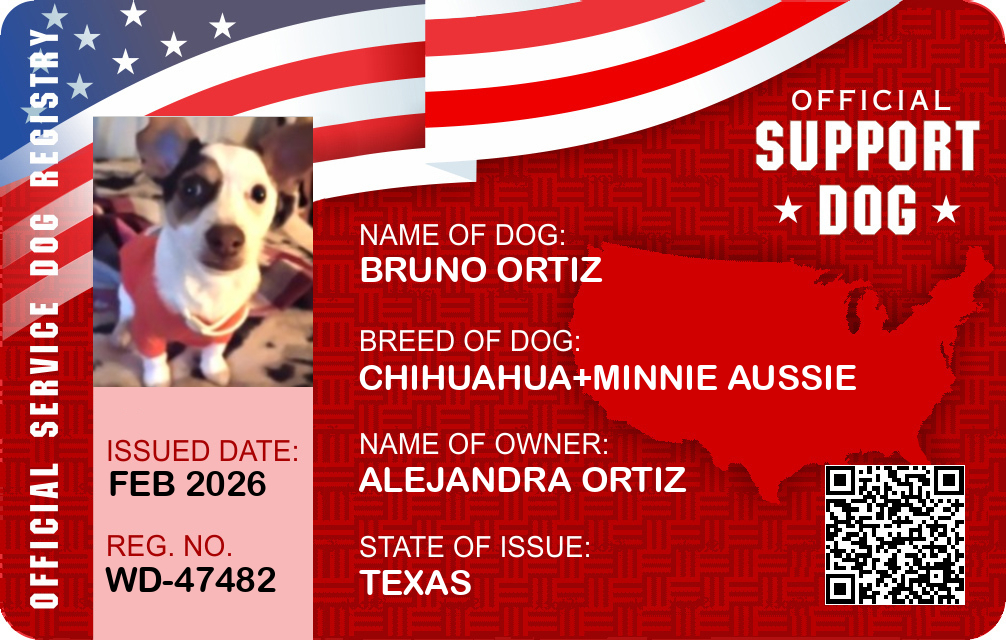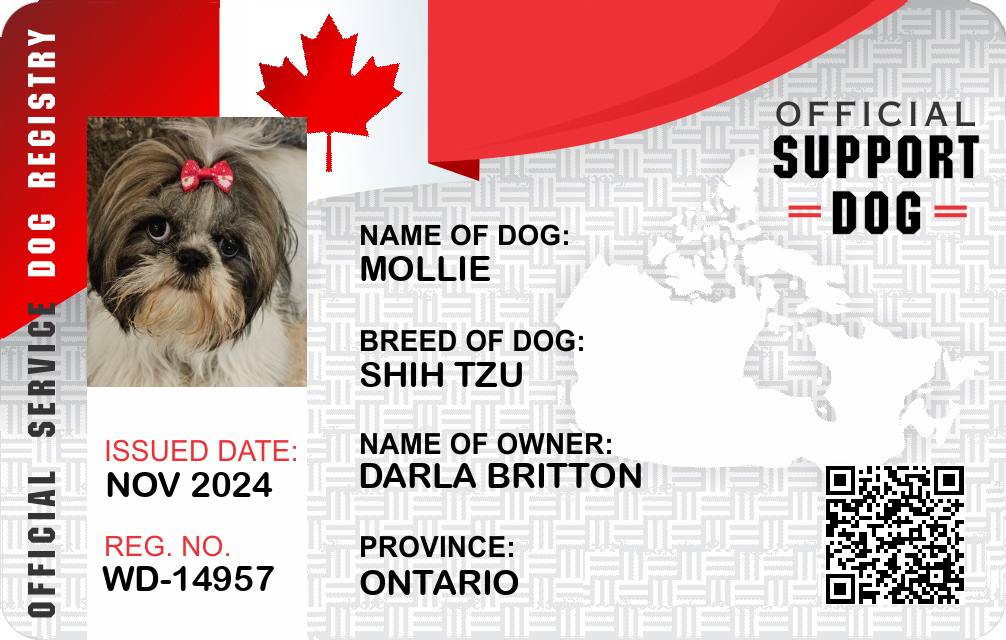Colorado Service Dog Laws
Get Your Documents
Example State Cards

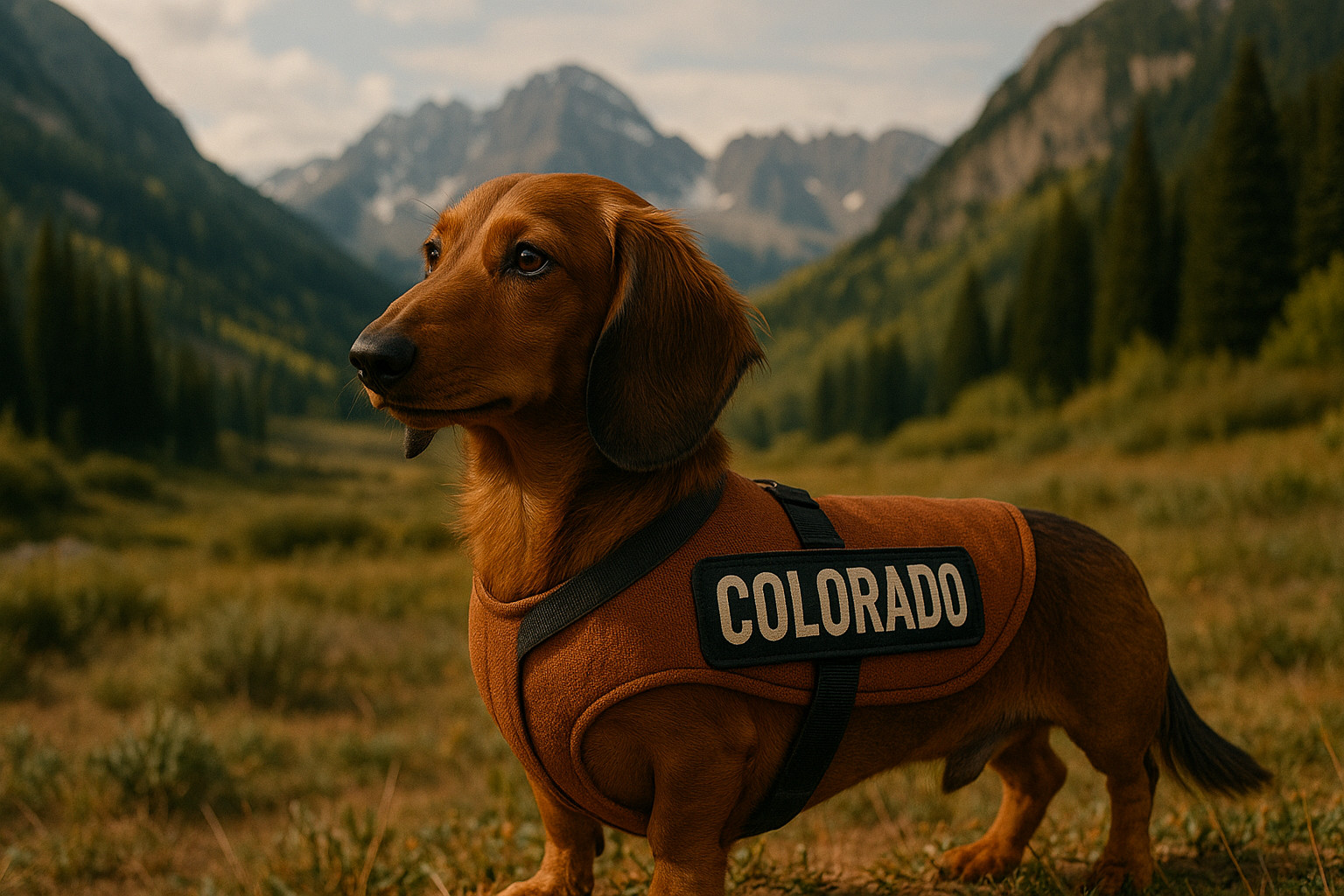
Overview of Service Dog and Legal Definitions in Colorado
Understanding the legal definitions and protections for service dogs is crucial in navigating the rights and responsibilities of both handlers and public entities. In Colorado, as elsewhere in the United States, service dogs are essential for individuals with disabilities, providing invaluable assistance and enhancing their independence.
What is a Service Dog?
Under the Americans with Disabilities Act (ADA), a service dog is defined as a dog that is individually trained to do work or perform tasks for a person with a disability. These tasks are directly related to the person’s disability, ranging from guiding individuals who are blind to alerting those who are deaf, pulling a wheelchair, or fetching items needed by a person with mobility issues. The legal definition emphasizes the specialized training the dog must undergo and excludes animals whose sole purpose is to provide comfort or emotional support, which do not qualify as service dogs under the ADA.
How Service Dogs Differ from Other Types of Assistance Animals
Assistance animals encompass a broad category including service dogs, emotional support animals (ESA), and therapy animals. Unlike service dogs, ESA and therapy animals do not require specific training to perform tasks directly related to an individual’s disability. Emotional support animals are primarily intended to provide comfort and support through companionship, and while they can be part of a therapeutic plan, they are not recognized under the ADA as service dogs. Therapy animals often serve in settings like hospitals or schools to help reduce stress or anxiety. Therefore, while all assist with disabilities in some capacity, service dogs have unique legal rights due to their task-specific training.
Key Federal Laws Affecting Service Dogs (e.g., ADA, FHA, ACAA)
Federal laws such as the ADA, the Fair Housing Act (FHA), and the Air Carrier Access Act (ACAA) provide overarching guidelines and protections for service dogs and their handlers. The ADA explicitly states that individuals with disabilities can bring their service dogs into public places that are open to the general public. The FHA extends these rights into housing, ensuring that individuals cannot be discriminated against based on their need for a service animal in their residence. The ACAA governs air travel, restricting airlines from denying transport access to individuals with service dogs.
State-Specific Service Dog Laws in Colorado
Colorado supplements these federal guidelines with its state-specific laws to further protect the rights of those using service dogs. Colorado law mirrors the federal ADA definition of service animals and provides additional safeguards. For instance, Colorado statutes allow individuals accompanied by service dogs the right to access any place that the general public is allowed, reinforcing the animals’ protections under ADA guidelines.
Housing Rights and Responsibilities
In Colorado, as under the FHA, individuals with service dogs are entitled to live with their animals in most housing situations, even if there’s a general “no pets” policy. Landlords must make reasonable accommodations for individuals with disabilities, a mandate that includes permitting service dogs on the premises without charging additional fees typically associated with pets. However, handlers are responsible for any damage caused by the dog.
Public Access and Accommodation
Public access rights for service dogs in Colorado adhere closely to ADA standards. Any entity open to the public, such as restaurants, hotels, theaters, and stores, must permit service dogs. These establishments cannot ask about the handler’s disability, require medical documentation, or request the service dog to perform its trained task. They can only inquire if the dog is a service animal required because of a disability and what task it has been trained to perform.
Transportation and Travel Rules
Transportation laws in Colorado complement federal ACAA directives, urging public transportation services and private carriers to accommodate service dogs. This includes buses, trains, and ride-sharing services. Service dogs are allowed to accompany their handlers in airline cabins, although handlers are advised to notify airlines in advance and adhere to any pertinent airline-specific policies.
Employment and Workplace Considerations
Under the ADA, Colorado employers are required to make reasonable accommodations for qualified employees with disabilities, a provision that extends to service animals. Employers must permit service dogs in the workplace unless doing so poses undue hardship or significant disruption to business operations. Employers are encouraged to engage in open dialogue with employees to ascertain how to integrate accommodations effectively.
Documentation, Requirements, and Processes in Colorado
Service Dog Documentation and Who Can Issue It
There is no legally mandated certification for service dogs. However, handlers may choose to have documentation from a certified trainer or service dog organization that outlines the dog’s training and abilities. It’s important to note that while such documents can facilitate smoother interactions with landlords or business owners, they are not legally required.
Landlord, Business, and Provider Verification Rules
Verification practices in Colorado are restricted by ADA guidelines. Landlords, businesses, and service providers may only ask limited questions about the service dog’s status and function. They cannot demand proof of training certificates or medical documentation to substantiate the handler’s need for a service dog, aligning with privacy protections under federal law.
Rights, Limitations, and Legal Risks
Rights Service Dog Handlers Have in Colorado
Handlers are entitled to accompany their service dogs wherever individuals without animals are allowed, including all public and most private accommodations. They are also shielded from additional fees or deposits, although they are liable for any damage inflicted by their service dog.
Limits on Service Dog Protections and Common Restrictions
While service dogs have broad access rights, there are scenarios where their presence can be legitimately restricted. If a service dog poses a direct threat to health or safety, is visibly ill-behaved, or is not under the handler’s control, access may be denied. Disturbances such as excessive barking or failing to follow commands can result in exclusion.
Penalties for Fraud or Misrepresentation
Colorado takes the fraudulent representation of pets as service animals seriously. Individuals caught misrepresenting their pet as a service dog risk fines and other penalties, a deterrence established to preserve the integrity and dignity of the service animal designation and to prevent fraud.
Practical Guidance for Service Dog Handlers in Colorado
How to Qualify for a Service Dog Legitimately
To qualify for a service dog, individuals must have a recognizable disability and a need for specific tasks performed by the service animal. Consulting healthcare providers to verify eligibility is recommended, following up with credible service dog organizations can facilitate acquiring a well-trained animal legally recognized as a service dog.
How to Talk to Landlords, Airlines, and Employers
Approaching these entities with clear, concise communication is key. Providing a brief explanation of the dog’s task capabilities and offering voluntary documentation can ease processes. Maintaining patience and preparedness to explain rights is crucial to avoid misunderstandings.
Summary of Service Dog Laws in Colorado
**
- Service Dogs Definition: Task-trained dogs for specific disabilities; not emotional support animals.
- Federal and State Laws: ADA, FHA, ACAA apply, with Colorado-specific supplements.
- Public Access Rights: Guaranteed in public entities; denial only for undue threats.
- Housing Entitlements: No-pet policies waived; responsibility for damages remains.
- Workplace Fairness: Reasonable accommodations required; no undue disruption.
- Documentation: Not required by law; voluntary for ease in certain cases.
- Legal Risks: Penalties for fraudulent representation; ensure compliance.
- Engagement Techniques: Consistent, clear communication; readiness to educate others.
**
Understanding and navigating the legal frameworks governing service dogs in Colorado ensure both protection and empowerment for individuals with disabilities and their invaluable companions.
Get Your Documents
Example State Cards





